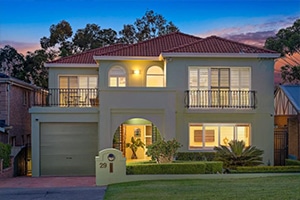Please fill out the details below to receive information on Blue Wealth Events
"*" indicates required fields

The reason most property investors fail to adopt a long-term strategy is due to the emotional challenges and temptations experienced throughout the property cycle. The emotional lure to sell your asset comes from two phenomena:
Frustration with periods of poor performance: during periods of stagnation, property investors are observing a consistent lag in growth. Believing what is currently happening will always happen, they grow frustrated and decide to sell.
The highs of early gains: during boom periods, property investors observe others selling for considerable profit and decide the going is too good to miss out themselves, exposing them to just a singular boom instead of multiple booms. This can be exacerbated by unsolicited calls from real estate agents telling you how great the market is and how now is the time to be selling.
The influence of human emotion and behaviour on markets has been understood and respected by economists to the point of spawning its own discipline of behavioural economics. Although it is important to understand how emotion and behaviour influence the market, it is more important you don’t become a victim of it yourself.
From an investors perspective, discipline is a person’s ability to block out the noise and focus on the long-term goal which was set when you purchased the property. At that time, you were aware that this was a business decision and you knew that no matter what had occurred in the market you’d stick to your goal.
An example which I think best portrays a markets cyclical nature and the important of not buying into the emotion and sentiment driven by media is the sales history of 29 Karuah Street, Greenacre, Sydney NSW 2190.
The last time the Sydney market peaked was 2004, in 2004 this property was sold for $810,000. The six years which followed are often forgotten about and masked by the recently strong Sydney performance however during this period Sydney was one of the country’s worst performing markets. The property was then sold in 2010 for $830,000. In six years the property value had only risen $20,000 when accounting for the original purchase costs, this owner lost money.
In 2011, much of the media discouraged Sydney with some journalists naming Bankstown, Parramatta and Blacktown as the housing repossession capitals of Sydney. Here are some headlines from 2010 & 2011 Sydney newspapers.
‘Australian house prices 56 per cent over valued: The Economist’
‘Home prices in biggest drop in 12 years’
‘A slow and steady fall’
‘House prices on shaky foundations’
6 years later, in July 2017 29 Karuah Street, Greenacre was sold for $1,590,000.
We know how difficult it can be to maintain a long term view particularly if you have experienced poorer performance in the short term and we also know that property markets cycles are not linear, there are instances where markets move backwards before moving forward however, we are confident that focussing on the research in conjunction with a long term holding period more often than not leads to a successful property investment strategy.
